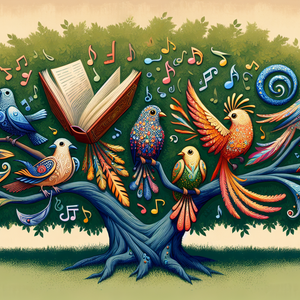ChatGPT as a Tutor: Revolutionizing Personalized Learning

ChatGPT is designed to generate human-like text based on user prompts, making it a versatile tool in educational settings. Unlike traditional teaching methods that often adopt a one-size-fits-all approach, ChatGPT can adapt its responses based on the specific inquiries and understanding levels of students. For example, if a student asks why the sky is blue, ChatGPT can provide a simple explanation suitable for younger learners or delve into complex atmospheric science for older students. This adaptability paves the way for customized learning experiences that cater to varied comprehension levels.
Enhancing Engagement Through Interactive Learning
One of the standout advantages of employing ChatGPT as a tutoring tool is its potential to enhance student engagement through interactive learning. Traditional educational methods often struggle to keep students interested, especially when they encounter challenging subjects. ChatGPT addresses this issue by providing instant feedback and real-time answers to questions, creating a dynamic learning environment. For instance, a student struggling with algebraic equations can request step-by-step explanations, receive practice problems tailored to their skill level, and even engage in dialogues that clarify doubts. This immediate and personalized interaction fosters a sense of agency in students, encouraging them to explore subjects more deeply.
Supporting Diverse Learning Styles
Every student has a unique learning style, be it visual, auditory, or kinesthetic. ChatGPT can cater to these diverse preferences by offering tailored resources and suggestions. For example, a visual learner may benefit from educational videos or interactive infographics linked by ChatGPT, while an auditory learner might prefer information presented in a conversational tone. This ability to recognize and adapt to different learning styles creates a more inclusive classroom environment, ensuring that all students have the opportunity to thrive.
Facilitating Self-Directed Learning
Self-directed learning is an essential skill in today’s fast-paced world, and ChatGPT can significantly promote this trait among students. In a traditional classroom, teachers often juggle numerous students’ needs, making it challenging to provide personalized attention. ChatGPT can fill this gap by offering students the freedom to seek answers and resources independently. For instance, a student interested in a specific historical event can engage with ChatGPT to gather information, explore multiple perspectives, and even formulate critical questions. This self-exploration fosters critical thinking and problem-solving skills, essential components of a well-rounded education.
Addressing Individual Challenges
Every student faces unique challenges in their learning journey, whether due to gaps in foundational knowledge, learning disabilities, or other personal hurdles. ChatGPT can be particularly effective in identifying and addressing these issues. For instance, a student struggling with reading comprehension can practice summarizing texts or answering questions with ChatGPT’s guidance. By providing targeted support and tailored exercises, ChatGPT empowers students to bridge their knowledge gaps and gain confidence in their abilities.
Preparing Students for an AI-Driven Future
As educational systems evolve, it is crucial to prepare students for a future increasingly dominated by AI tools like ChatGPT. Integrating AI into the curriculum can help students understand how to utilize these technologies effectively, fostering a mindset of adaptability and lifelong learning. Educators can guide students in using ChatGPT not only for academic support but also for developing critical analytical skills, understanding ethical considerations, and exploring the implications of AI in society.
As we progress into the 21st century, the role of technology in education will continue to expand, reshaping how students learn and interact with knowledge. ChatGPT exemplifies how AI can revolutionize personalized learning, offering tailored support in ways that traditional methods often cannot. By enhancing engagement, accommodating diverse learning styles, promoting self-directed exploration, and addressing individual challenges, ChatGPT is poised to transform the educational landscape. Educators who embrace this innovative tool will not only enrich their students' learning experiences but also equip them for a future where adaptability and lifelong learning are paramount. The potential of ChatGPT as a tutor is immense, and as we harness its capabilities, we move closer to realizing the true promise of personalized education.
AI Education Specialist
Khan Academy, Coursera, Schoology
Core Responsibilities
Develop and implement AI-driven educational tools and programs tailored to diverse learning needs.
Collaborate with educators to integrate AI technologies like ChatGPT into the curriculum effectively.
Required Skills
Strong understanding of machine learning principles and educational theories.
Experience with instructional design and curriculum development.
Unique Qualifications
Advanced degree in education, instructional technology, or related fields.
Instructional Designer for AI Learning
Corporations investing in training programs, universities, ed-tech startups
Core Responsibilities
Create engaging, interactive learning experiences that utilize AI tools for personalized education.
Conduct assessments to evaluate the effectiveness of AI-enhanced learning programs.
Required Skills
Proficiency in eLearning development software (e.g., Articulate, Adobe Captivate).
Strong analytical skills to assess student performance and feedback.
Unique Qualifications
Experience in teaching or educational psychology and a background in technology integration.
Data Analyst in Educational Technology
Ed-tech companies, research institutions, educational nonprofits
Core Responsibilities
Analyze student engagement and performance data to inform the development of AI educational tools.
Provide insights and recommendations to improve personalized learning experiences.
Required Skills
Proficient in data analysis tools (e.g., Python, R, Excel) and visualization software (e.g., Tableau).
Strong problem-solving skills and attention to detail.
Unique Qualifications
Background in education or social sciences, with experience in data analytics.
Learning Experience Designer
Universities, online learning platforms, large corporations offering employee training
Core Responsibilities
Design and develop learning experiences that leverage AI technologies to support diverse learner needs.
Collaborate with subject matter experts to ensure the accuracy and relevance of educational content.
Required Skills
Strong understanding of learning theories and user experience design principles.
Familiarity with AI tools and platforms, particularly in educational settings.
Unique Qualifications
Certification in instructional design or a degree in educational technology.
EdTech Product Manager
Pearson, McGraw-Hill, start-ups in the ed-tech sector
Core Responsibilities
Oversee the development and launch of AI-powered educational products, ensuring they meet user needs.
Conduct market research to identify trends in AI and education, guiding product enhancements.
Required Skills
Strong project management skills and experience with Agile methodologies.
Excellent communication skills to collaborate with cross-functional teams.
Unique Qualifications
Background in education or technology, combined with experience in product management.


